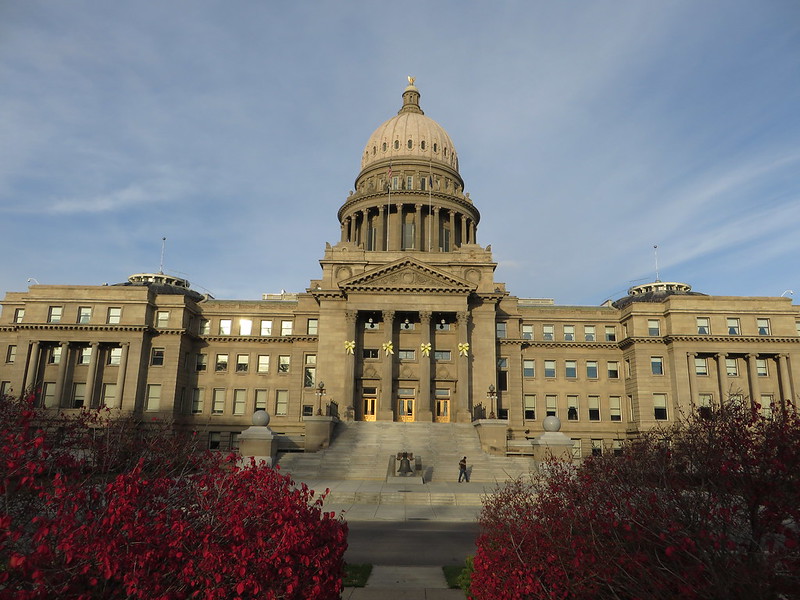Idaho Laws Banning Student IDs for In-Person Voting and Registration Upheld by Federal Judge

A federal judge upheld a set of Idaho laws enacted last year by the Republican-controlled Legislature that eliminated the use of student IDs for voter registration and in-person voting.
In a ruling handed down today, Biden-appointed Judge Amanda K. Brailsford concluded that “while it may be easier for students to register to vote or to vote using their student identification card, ‘it does not automatically follow’ that not allowing them to use these cards imposes a ‘material requirement’ on their right to vote on account of their age.”
Brailsford’s ruling comes as part of a lawsuit filed last year by March For Our Lives Idaho and the Idaho Alliance for Retired Americans alleging that the removal of student IDs as an acceptable form of voter identification amounted to a “surgical attack on Idaho’s young voters.”
The organizations argued the new photo ID laws violate the U.S. Constitution’s 26th Amendment by discriminating against youth voters as well as the Equal Protection Clause by imposing new requirements on new voter registrants as compared to existing voters.
Additionally, the groups contended the law requiring certain forms of photo ID for registration constituted a poll tax, since it necessitates that registrants pay a fee in order to obtain one of the acceptable forms of identification.
The challenged laws were enacted against the backdrop of record-high levels of youth voter participation in recent elections. According to Tufts University, Idaho has seen a 66% increase in registration for voters aged 18 and 19 between November 2018 and September 2022 — by far the highest registration rate for new, young voters in the country.
One of the laws, House Bill 124, precludes the use of a student ID as an acceptable form of identification for in-person voting and limits acceptable forms of identification to the following:
- An Idaho driver’s license or identification card issued by the Idaho Transportation Department;
- A passport or other U.S. government issued photo ID;
- A tribal identification card with a photo or
- A license to carry concealed weapons.
The lawsuit also brought claims against a separate law, House Bill 340, which imposes the same photo ID requirements for voter registration that H.B. 124 does for in-person voting, and adds onerous proof of residency requirements for those who register using a passport or government-issued ID.
H.B. 340 created an option for voters to obtain a “no-fee” ID through the Idaho Department of Transportation for those who are 18 or older. Previously, the law restricted who could obtain this type of cost-free ID to individuals who did not possess a driver’s license for at least six months, but new legislation that went into effect this July removed that limitation.
According to today’s ruling, the updated law’s removal of the six-month cooling period “effectively eliminates Plaintiffs’ argument that some registrants will have to pay a fee to obtain acceptable identification.” As for voters who will turn 18 shortly before Election Day — and might not have time to obtain a no-fee ID — the state said it would accept a receipt of an application for the no-fee ID as a valid form of voter identification.
“While Plaintiffs present some evidence that the elimination of student identification cards as an acceptable form of identification bears more heavily on younger voters, such disparate impact is minimized by the fact that elimination of student identification cards will not likely result in an inequality of opportunity to vote for younger citizens,” the ruling continued.
In April, the Idaho Supreme Court unanimously rejected a state-level legal challenge to the laws, concluding that the new ID requirements “are reasonable exercises of the legislature’s authority to enact conditions on the right of suffrage.”